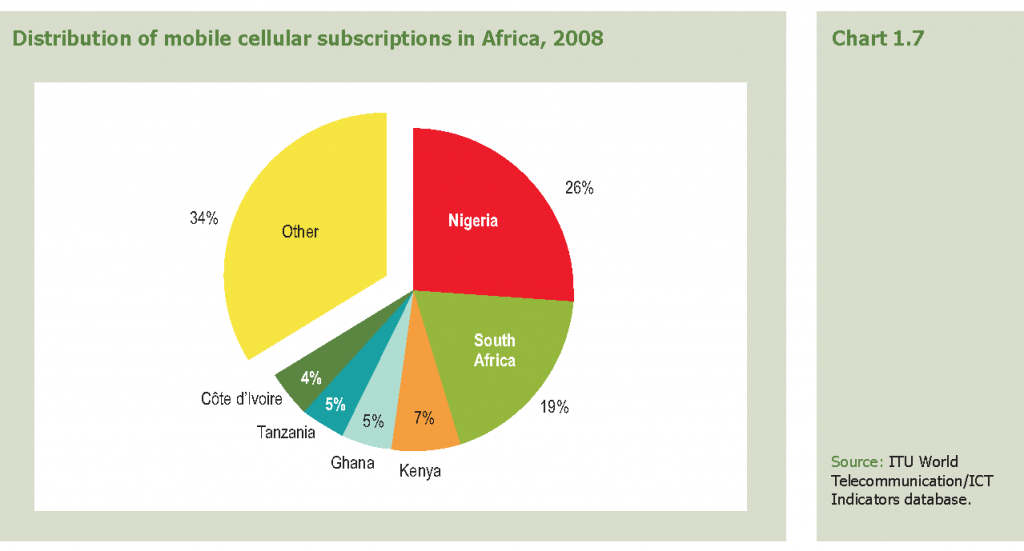On to the hot topic of today’s post, The International Telecommunication Union recently published their Information Society Statistical Profiles 2009 – Africa. The 76 page document details their statistical analysis of the progress of telephony and internet in Africa in the ten years up to the end of 2008. And guess what? Nigeria ranks highly in the fastest growing categories for mobile subscription, and internet and broadband. Again, this isn’t surprising, as a country we are effectively an African superpower.
Before we get carried away with this, we do need to pay attention, relative to the size of our population, we have a long way to go. We only have 7.8 internet users per 100 inhabitants, while tiny countries like the Seychelles and Mauritus have 37.8 and 29.9 respectively. Only 5.1% of Nigerian households have a computer and our bandwidth puts us in league with Zimbabwe and DR Congo (both countries currently in turmoil compared to us) at less than 100 bits per internet user.
Naturally, some of these issues are down to access to connectivity in Africa as a whole, an issue being addressed by the WACS, Seacom and TEAMS underwater cables. As a nation, what we all need to consider is how to capitalise on these developments. We will always have numbers on our side because our size gives us the advantage of mass. However, we also need to consider proportionality, it’s about improving access and quality for a whole nation; computers in schools, reasonable and accessible telephony packages and services for everyone are all part and parcel of improving technology penetration in our country.
And lest we sound ungrateful, it is positive to know that we stand at the head of positive progress and development in spite of others (and in some cases ourselves), let’s see just how much further this next decade will take us.
